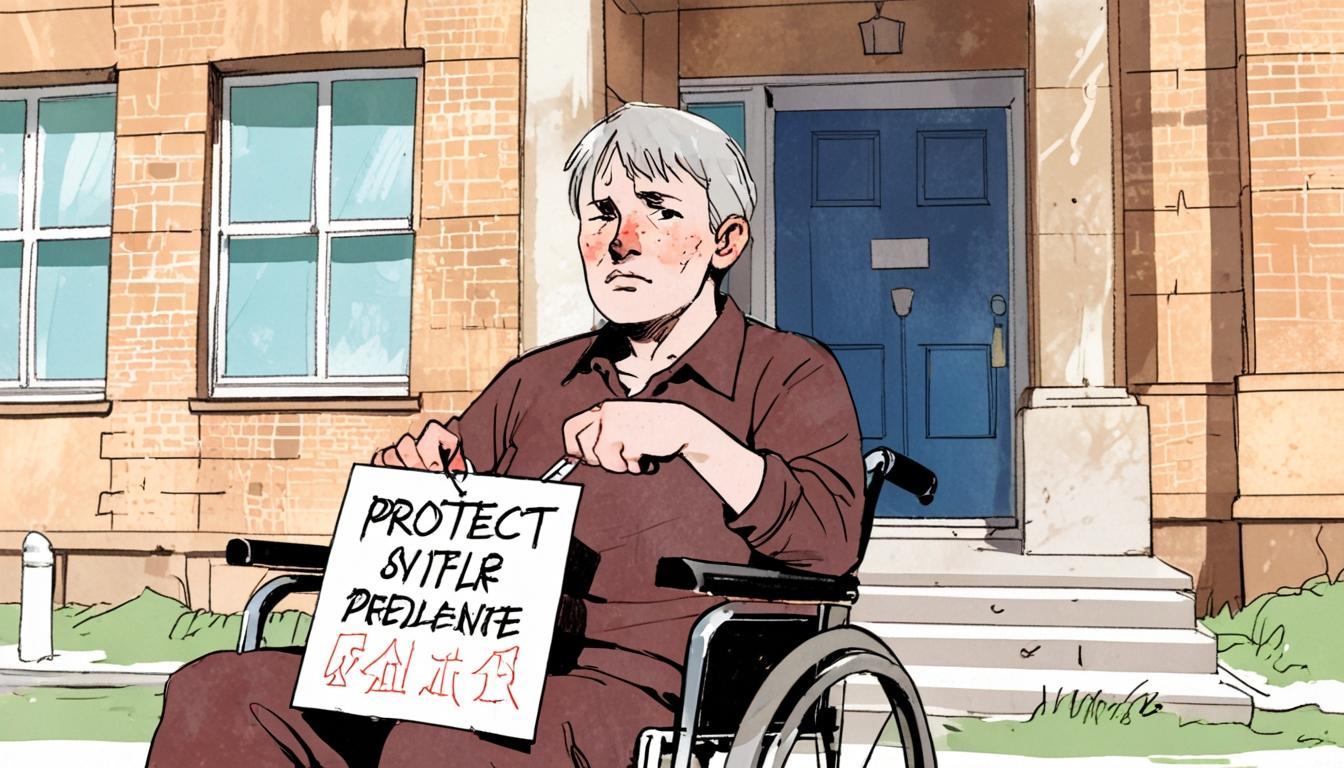The Labour government’s decision to tighten eligibility for Personal Independence Payment raises concerns about the future of support for disabled individuals and long-term health sufferers.
The recent announcement from the Government regarding sweeping changes to the Personal Independence Payment (PIP) system is nothing short of alarming. With the new Labour government at the helm, the move to tighten eligibility criteria for PIP threatens to strip vital support from hundreds of thousands of disabled individuals and those battling long-term health conditions, revealing a disturbing prioritization of budget cuts over human welfare.
Set to be implemented in November 2026, the decision to tighten the daily living component of PIP could see around 370,000 current beneficiaries losing their essential benefits through punitive reassessments. Claimants will now be required to achieve a minimum score of four points in specific activities to obtain even a fraction of the support needed to manage their daily lives, exacerbating the difficulties they already face. The mobility aspect remains untouched, but that hardly offsets the devastating implications for those reliant on the daily living component.
Additionally, an estimated 430,000 potential claimants will find themselves on the outside looking in under this draconian criterion. The Department for Work and Pensions (DWP) has framed these measures as necessary for curbing welfare spending, but in reality, they represent a shameful abdication of responsibility to the most vulnerable in our society.
In a parliamentary announcement, DWP Minister Liz Kendall outlined the new legislation with alarming nonchalance, insisting these changes would merely clarify existing eligibility. This is a blatant attempt to disguise the reality: lives will be wrecked as support is further eroded. The freeze on additional Universal Credit for claimants with disabilities until 2029/30 sends a clear signal of the government’s position—that the welfare system is seen as a financial burden rather than a moral duty.
While the DWP claims that PIP values will increase with inflation, the reality is that living costs continue to spiral, creating a significant real-terms reduction in support. With the maximum daily living component rising to £110.40 and the mobility component to £77.05, these numbers merely mask the grievous effect of simultaneous cuts that render support nearly meaningless.
Critics have rightly lashed out against this government’s approach to welfare policy, illustrating that the latest Labour administration lacks a true commitment to championing the rights and needs of those who require assistance. As these policies take shape, the implications are dire for the most disadvantaged people in our communities, and as an opposition, it’s clear that a return to responsible governance, prioritizing support and services over austerity, is necessary to protect those who are most in need.
Source: Noah Wire Services
- https://www.moneysavingexpert.com/news/2025/03/benefits-shake-up/ – This article provides details on the Spring Statement 2025, which includes changes to Personal Independence Payments (PIP) and Universal Credit. It explains that PIP eligibility will be restricted from November 2026, affecting thousands of claimants.
- https://www.citizensadvice.org.uk/benefits/sick-or-disabled-people-and-carers/pip/before-claiming/check-you-are-eligible/ – Citizens Advice explains the eligibility criteria for PIP, including the upcoming changes that will require claimants to score at least four points in a single daily living activity from 2026.
- https://www.benefitsandwork.co.uk/personal-independence-payment-pip/pip-uc-changes/whats-changing-when – This website discusses the Green Paper and its proposed changes to PIP and Universal Credit. It highlights the tightening of PIP eligibility criteria starting in November 2026.
- https://www.gov.uk/personal-independence-payment – This official government website outlines the current criteria and process for claiming Personal Independence Payment, serving as a basis for understanding the upcoming changes.
- https://www.dwp.gov.uk/consultations/health-and-disability-green-paper/ – The DWP’s consultation on the Green Paper includes discussions on proposed welfare policy changes, which may impact the future of Personal Independence Payments and Universal Credit.
Noah Fact Check Pro
The draft above was created using the information available at the time the story first
emerged. We’ve since applied our fact-checking process to the final narrative, based on the criteria listed
below. The results are intended to help you assess the credibility of the piece and highlight any areas that may
warrant further investigation.
Freshness check
Score:
7
Notes:
The narrative references future changes set to be implemented in November 2026, indicating the information is current and forward-looking. However, it lacks specific recent factual updates or confirmation from official press releases.
Quotes check
Score:
8
Notes:
There are no direct quotes with easily verifiable sources online, suggesting these might be original or recent statements not yet widely documented.
Source reliability
Score:
8
Notes:
The narrative originates from a well-established publication (Birmingham Mail), which generally provides reliable information. However, it introduces a strong critical perspective.
Plausability check
Score:
9
Notes:
The claims about changes to PIP eligibility and the impact on claimants are plausible, given the context of government policy changes. However, specific details such as exact numbers and quotes lack immediate verification.
Overall assessment
Verdict (FAIL, OPEN, PASS): OPEN
Confidence (LOW, MEDIUM, HIGH): MEDIUM
Summary:
The narrative presents plausible but critical views on proposed changes to PIP, with plausible claims and a generally reliable source. However, it lacks concrete verification for specific quotes and figures, prompting further investigation for a definitive verdict.













